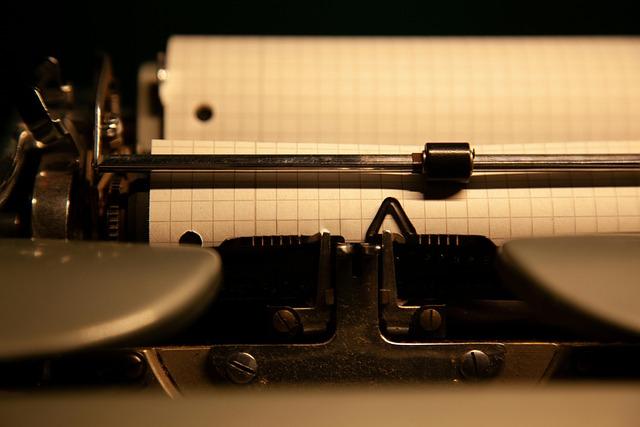- Introduction
- Understanding Plagiarism
- Importance of Integrity in Writing
- Features of Free Online Plagiarism Checkers
- Top Free Plagiarism Checkers
- Conclusion
- FAQs
Introduction
In the digital age, the ease of accessing information has made it a challenge to ensure originality in writing. This article aims to provide a comprehensive guide on integrity in writing, focusing on how free online plagiarism checkers can help maintain it. We will explore and define what plagiarism is, delve into the significance of maintaining integrity in your work, examine the features of the best free plagiarism checkers available, and review some top tools that you can utilize.
Understanding Plagiarism
Plagiarism is often defined as the act of using someone else's work or ideas without giving proper credit. It encompasses a range of actions, from copying text verbatim to paraphrasing without acknowledgment. Understanding the nuances of plagiarism is vital for writers, scholars, and students alike.
There are various forms of plagiarism, including direct plagiarism, self-plagiarism, mosaic plagiarism, and accidental plagiarism. Each type presents unique challenges and implications. For example, direct plagiarism involves copying someone else's work without citing the source, whereas self-plagiarism occurs when an author reuses their previously published content without citation.
Awareness of these different forms helps writers take proactive steps to avoid unintentional infringements. Educational institutions, businesses, and publishers increasingly mandate plagiarism checks as part of maintaining quality standards and intellectual property rights. Therefore, understanding plagiarism is more than just an academic exercise; it's a critical life skill.
Moreover, the rise of online education and the availability of information on the internet have made it easier for individuals to encounter instances of potential plagiarism. As such, the necessity for efficient methods to check for originality becomes paramount.

(Image: Pixabay/@oscarwcastillo)
Importance of Integrity in Writing
The role of integrity in writing cannot be overstated. Integrity fosters trust and credibility, both essential qualities for any writer. Without these qualities, a writer's work may be dismissed by critics, peers, or the audience. In academia, maintaining integrity is critical, as it aligns with the ethical standards expected from researchers and scholars.
Furthermore, integrity influences the emotional and psychological aspects of writing. Writing with integrity encourages respect for the source material, promotes original thought, and ultimately contributes to the understanding and progression of knowledge within a given field. When writers acknowledge their sources, they contribute to an environment of collaboration and respect for intellectual property.
Additionally, integrity in writing can lead to enhanced personal growth and improved writing skills. In striving to produce original content, writers become more engaged with their topics, leading to deeper insights and a more enriching writing process. Furthermore, this commitment to originality can set a writer apart in a crowded marketplace, establishing them as a thought leader or expert in their niche.
Moreover, followers and readers appreciate content that brings new perspectives and fresh ideas. By avoiding plagiarism and generating original work, writers can build a loyal readership and foster a dedicated community around their contributions. In turn, this sense of belonging can motivate writers to continue cultivating their craft and challenging themselves creatively.

(Image: Pixabay/@Jay_T)
Features of Free Online Plagiarism Checkers
Free online plagiarism checkers have evolved significantly over the years, thanks to advancements in technology and software capabilities. Their functions not only check for plagiarism but also offer valuable insights into writing quality and content originality. Let's take a look at some essential features to consider when choosing a plagiarism checker:
1. **Accuracy**: A good plagiarism checker should accurately detect matching texts against a wide range of sources, including web pages, academic papers, and journals. An increased database ensures that your content is evaluated against a larger pool of existing material.
2. **User Interface**: A user-friendly interface allows writers to navigate easily through the plagiarism checker without technical difficulties. Simple features like uploading files, dragging and dropping documents, and viewing results should be intuitive.
3. **Detailed Reports**: Quality plagiarism checkers provide comprehensive reports highlighting specific matches between your text and other sources. This feature enables users to understand which sections require rephrasing or proper citations.
4. **Language Support**: Some plagiarism checkers offer support for multiple languages, making them accessible to a global audience. For international writers, this feature can help recognize and address integrity issues across diverse linguistic backgrounds.

(Image: Pixabay/@No-longer-here)
Top Free Plagiarism Checkers
With numerous plagiarism checkers available online, choosing the right one can be overwhelming. To help you make an informed decision, we’ve compiled a list of some of the best free plagiarism checkers, each offering unique features tailored to different types of users:
1. **Grammarly**: While primarily known for its grammar-checking abilities, Grammarly also includes a plagiarism checker function. The tool scans billions of web pages and academic databases to identify potential matches. The premium version provides more comprehensive reports, but its free version is still useful for basic checks.
2. **Quetext**: Quetext offers a simple yet effective plagiarism checking experience. Its DeepSearch technology enables fast and accurate results, and the comprehensive report clearly indicates matched phrases and sentences. Users can access basic features for free with an option to upgrade for additional functionalities.
3. **PlagScan**: Aimed more at institutions and educators, PlagScan provides a robust tool for checking document authenticity. The platform combines plagiarism detection with detailed analysis to help users identify similarities effectively. Free users can scan limited documents before needing to consider their paid versions.
4. **Duplichecker**: This user-friendly tool allows you to paste your text or upload documents to check for similarity. Duplichecker quickly displays results and highlights matches found. Its ease of use and efficient detection features make it a favorite among students and casual writers alike.

(Image: Pixabay/@elenawe)
Conclusion
Maintaining integrity in writing is crucial for anyone looking to establish a credible voice in their field. Free online plagiarism checkers serve as invaluable tools in this quest by providing easy access to originality verification and promoting ethical writing practices. Understanding what plagiarism is, recognizing its pitfalls, and utilizing effective tools can pave the way for authentic, trustworthy content creation. Through diligent effort and thoughtful consideration, writers can achieve integrity in their work—setting themselves up for success in their respective domains.
FAQs
What is plagiarism?
Plagiarism is the act of using someone else's work, ideas, or expressions without properly citing the source. It can occur in multiple forms, including direct copying, paraphrasing without acknowledgment, or even self-plagiarism.
How can I avoid plagiarism?
To avoid plagiarism, always give credit to the original authors when referencing their work. Utilize plagiarism checkers, develop your own voice, take clear notes while researching, and familiarize yourself with citation styles required for your field.
Are free plagiarism checkers reliable?
While many free plagiarism checkers provide a basic level of functionality and accuracy, they may not search all available sources compared to paid options. It's advisable to test several free tools to determine which one meets your needs.
Can plagiarism affect my academic career?
Yes, plagiarism can have severe consequences for your academic career, including failing grades, loss of credibility, or even expulsion from your educational institution. Maintaining integrity in your work is essential to succeed academically.
Is self-plagiarism considered a serious offense?
While it may seem less severe than traditional plagiarism, self-plagiarism can still lead to ethical concerns. It can mislead readers about the originality of your content and impact your reputation as a writer unless properly cited.
